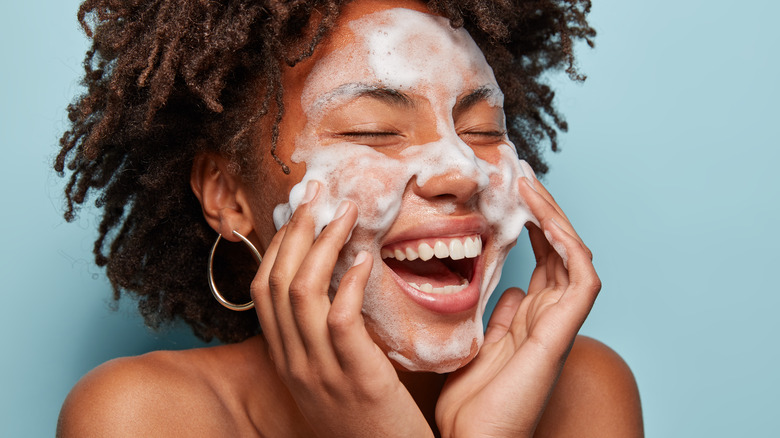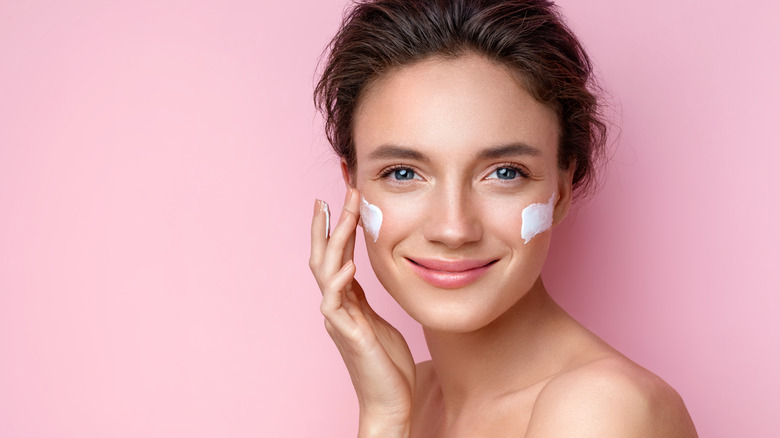How To Build A Skincare Routine For Acne-Prone Skin
The reality is that if you have skin that's prone to acne, the vast number of skincare solutions available can feel rather overwhelming. However, just because there are lots of options to choose from, that doesn't mean finding the right approach for caring for your acne-prone skin has to be a struggle.
As noted by Byrdie, Johns Hopkins stated that acne is a fairly common condition that is a "disorder of the hair follicles and oil glands (sebaceous glands). The sebaceous glands secrete oils (sebum) to keep the skin moist. When the glands get clogged, it can lead to pimples and cysts." Byrdie reported that, as per the American Academy of Dermatology, acne is one of the most common skin conditions in the United States and affects up to 50 million people each year, with around 85% of young people aged 12 to 24 experiencing some form of acne.
The key to skincare success when caring for acne-prone skin is creating a routine that is consistent, in addition to using high-quality products designed for your skin type. While acne can be difficult to live with, the good news is that there are plenty of options for managing and treating acne-prone skin.
What should a skincare routine for acne-prone skin consist of?
So when it comes to treating acne-prone skin, we're leaving the tips and tricks up to the experts. As per Bustle, Dr. Ellen Marmur, board-certified dermatologist, recommended that people with acne-prone skin should avoid thick cleansing balms, as these may clog oil skin. Byrdie noted that Arash Akhavan, board-certified dermatologist, suggested that it's best to cleanse acne-prone skin twice a day. He also suggests that creamy, oil-free cleansers that contain salicylic acid tend to work best for this skin type.
When it comes to toner, Dr. Hadley King told Bustle that while some people are unsure about whether toner is an important aspect of a skincare routine, it can be very helpful for people with acne-prone skin. Board-certified dermatologist Brendan Camp told Byrdie that, "Using toner is an additional step that helps remove extra oil and impurities from the skin as well as rebalance the pH of the skin, which is normally slightly acidic." So don't skip your toner, friends.
There's a common misconception that oily skin does not need moisturizing, but Marmur explained that, "You still need to gently hydrate and nourish the skin with antioxidants and peptides, even if it's oily." As per Byrdie, Camp explains that providing the skin with moisture is a crucial step, especially in your morning skincare routine. As it turns out, if you wash your face and then use toner, but you don't finish the routine off with a moisturizer, you can "leave the skin dry, vulnerable to infection, and dull in appearance." So you heard it here — even if you have oily skin, it's important to hydrate.

